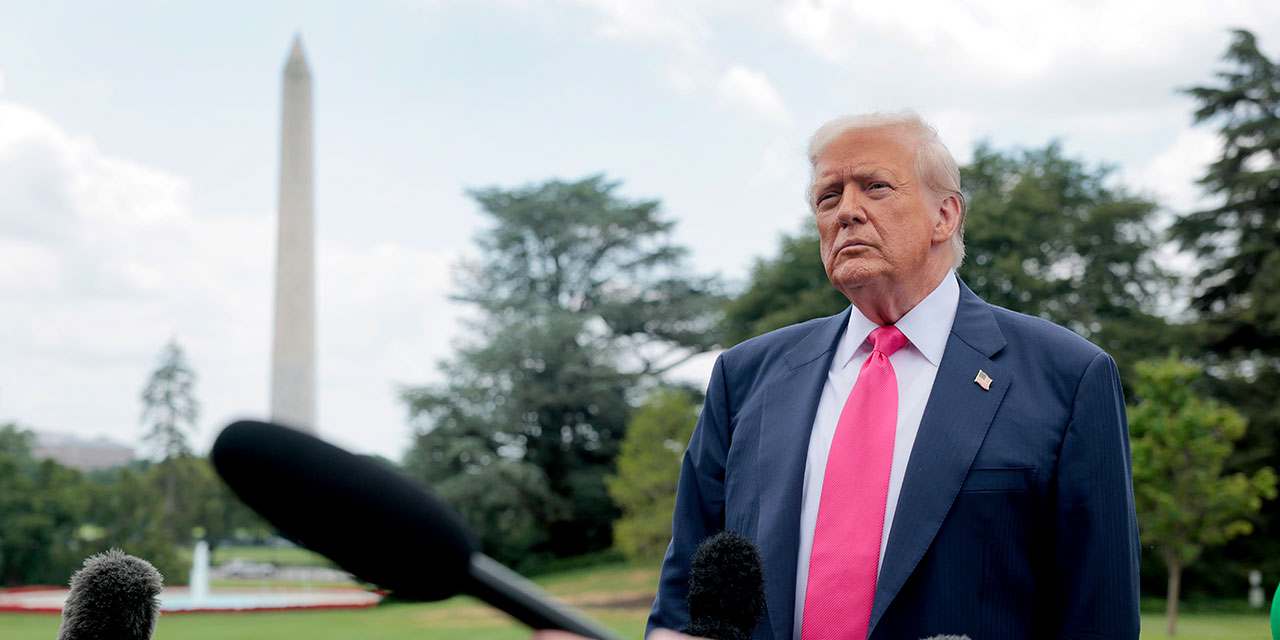
Soon after Donald Trump’s 2024 election victory, mainstream media predicted an “epic” deregulatory agenda that would have the finance world “dancing in the street.” So far, the reality has been less dramatic, with some useful but modest changes. Now, however, two new moves by the Securities and Exchange Commission suggest that the administration may be revving up the deregulatory agenda.
Last month, the commission announced the formal withdrawal of 14 pending Biden-era regulations still moving through the regulatory rulemaking process. Among these rules were several big-ticket items, including an anti-greenwashing rule—which sought to tighten controls on funds that label themselves “green”—and another involving the shareholder proposal process.
Finally, a reason to check your email.
Sign up for our free newsletter today.
The Biden SEC promulgated the anti-greenwashing rule in response to the rise of environmental, social, and governance (ESG) investing. The rule was meant to operate alongside the SEC’s Names Rule, also enacted during the Biden administration and likewise involving additional requirements for ESG funds; the Trump administration has delayed enforcement of this rule.
The anti-greenwashing rule used a three-tiered structure to delineate the centrality of ESG to the fund at issue: ESG-integration funds, ESG-focused funds, and Impact-focused funds. These designations determined the subsequent level of enhanced disclosure requirements that funds would be required to meet. Depending on the designation, the requirements could become quite complex, including mandating disclosure of the methodologies a fund uses for measuring carbon footprint and the quantitative and qualitive measures by which a fund assessed progress toward ESG goals.
Ensuring truth-in-advertising is a laudable goal, but it was far from clear that the regulatory burden resulting from the rule was justified. The Biden-era SEC did not claim that funds misleading investors represented an acute problem, and much of the due diligence embedded in the rule is the kind that investors already do themselves.
The other rule involved the shareholder-proposal process, which allows shareholders to introduce proposals to influence a corporation’s operations and policies at the company’s annual meeting. Historically, the SEC’s Rule 14a-8, which governs shareholder proposals, has set relatively low bars for proposals to qualify for inclusion on annual corporate meeting proxy ballots.
As a result, the number of such proposals has exploded over time, as tracked by the Manhattan Institute’s Proxy Monitor project. This has allowed motivated actors to exploit the corporate shareholder-proposal process to advance pet environmental and social causes, which often hurt shareholder value.
Under the first Trump administration, the SEC sought to raise the bar modestly for shareholder proposals under Rule 14a-8, such as by increasing the stock-ownership threshold for inclusion on proxy ballots. The Biden administration reversed course, again watering down the requirements by, among other things, making it harder for companies to exclude “duplicative” or resubmitted proposals. The Trump administration now appears poised to raise the bar again.
While this is a worthy effort, the SEC doesn’t have clear statutory authority to involve itself in this debate in the first place. In the U.S., it’s long been understood that incorporation law should reside with state governments, not the feds. Despite this, the SEC has largely abrogated state law in this area and given itself a “shareholder-proposal gatekeeper” role. That role is theoretically based on the Securities Exchange Act, but the actual text of that 1934 law relates to ensuring clear disclosure of investment information—not substantive shareholder rights.
Both the anti-greenwashing rule and the shareholder-proposal rule will require the current SEC to consider its next steps carefully. A more narrowly tailored effort to ensure basic truth-in-advertising for ESG funds might find favor on both the right and the left. On the second issue, the commission will need to decide whether to re-raise the bar for shareholder proposals or to take the more dramatic step of returning the issue to the states.
Either way, it’s clear that the Trump financial deregulatory agenda has commenced in earnest. In the months ahead, expect it to hit high gear.
Photo by Anna Moneymaker/Getty Images
City Journal is a publication of the Manhattan Institute for Policy Research (MI), a leading free-market think tank. Are you interested in supporting the magazine? As a 501(c)(3) nonprofit, donations in support of MI and City Journal are fully tax-deductible as provided by law (EIN #13-2912529).
Source link

















